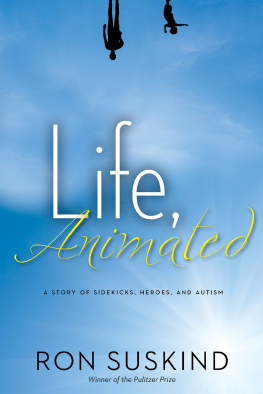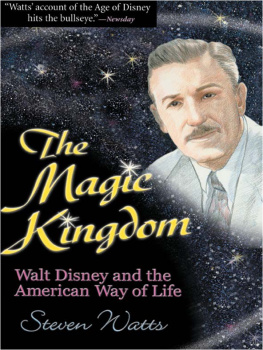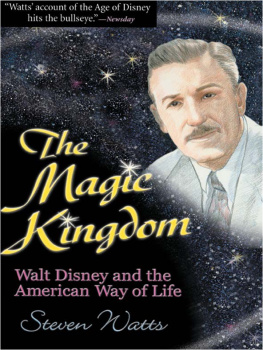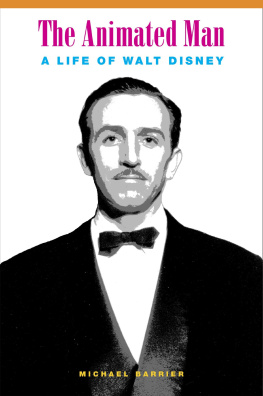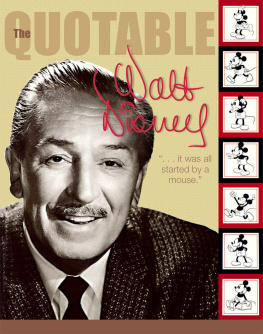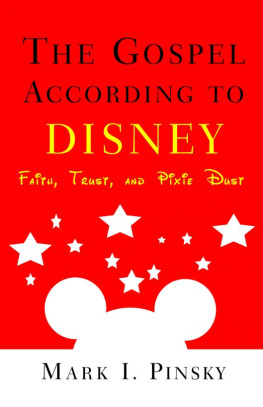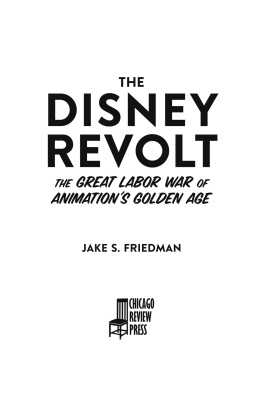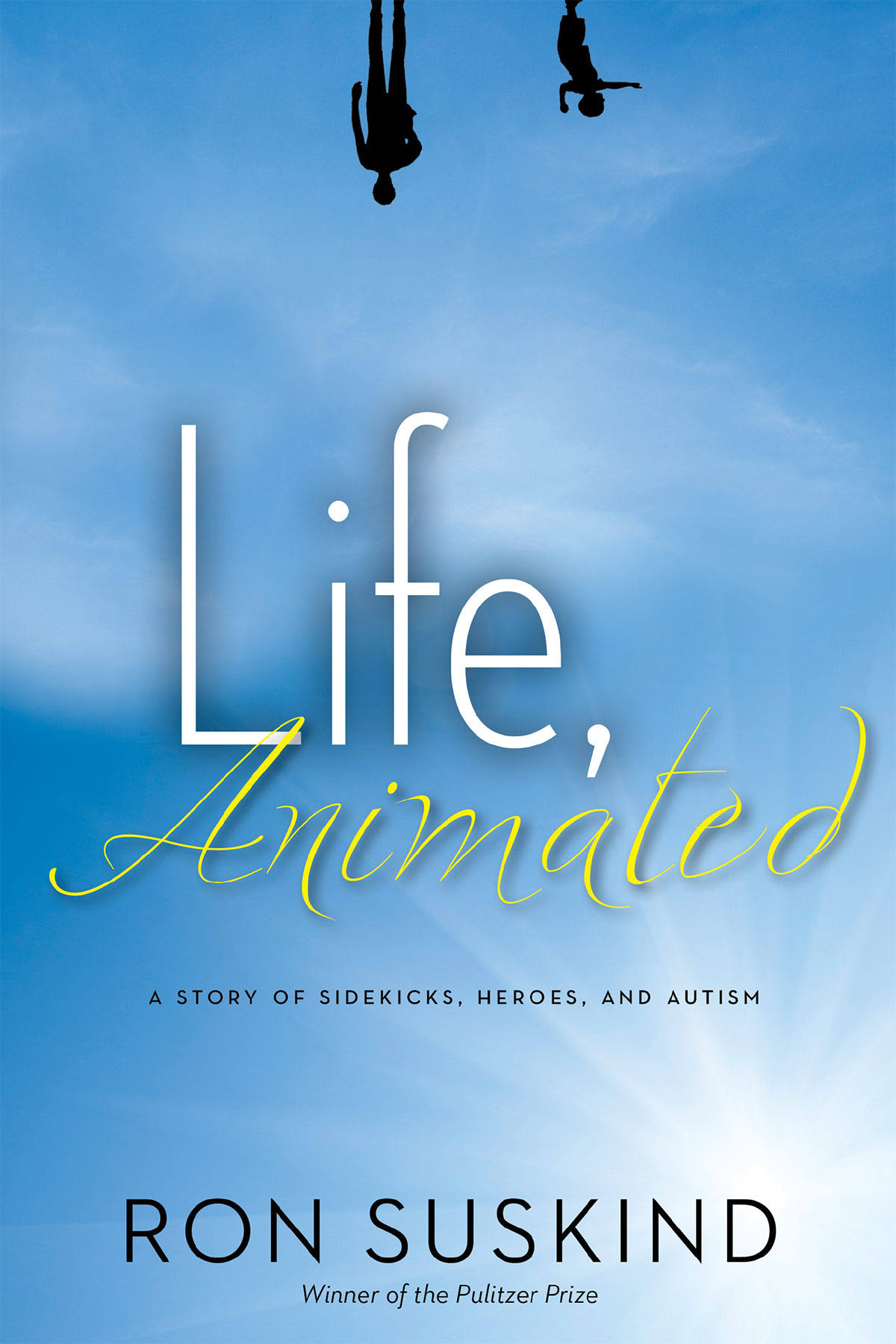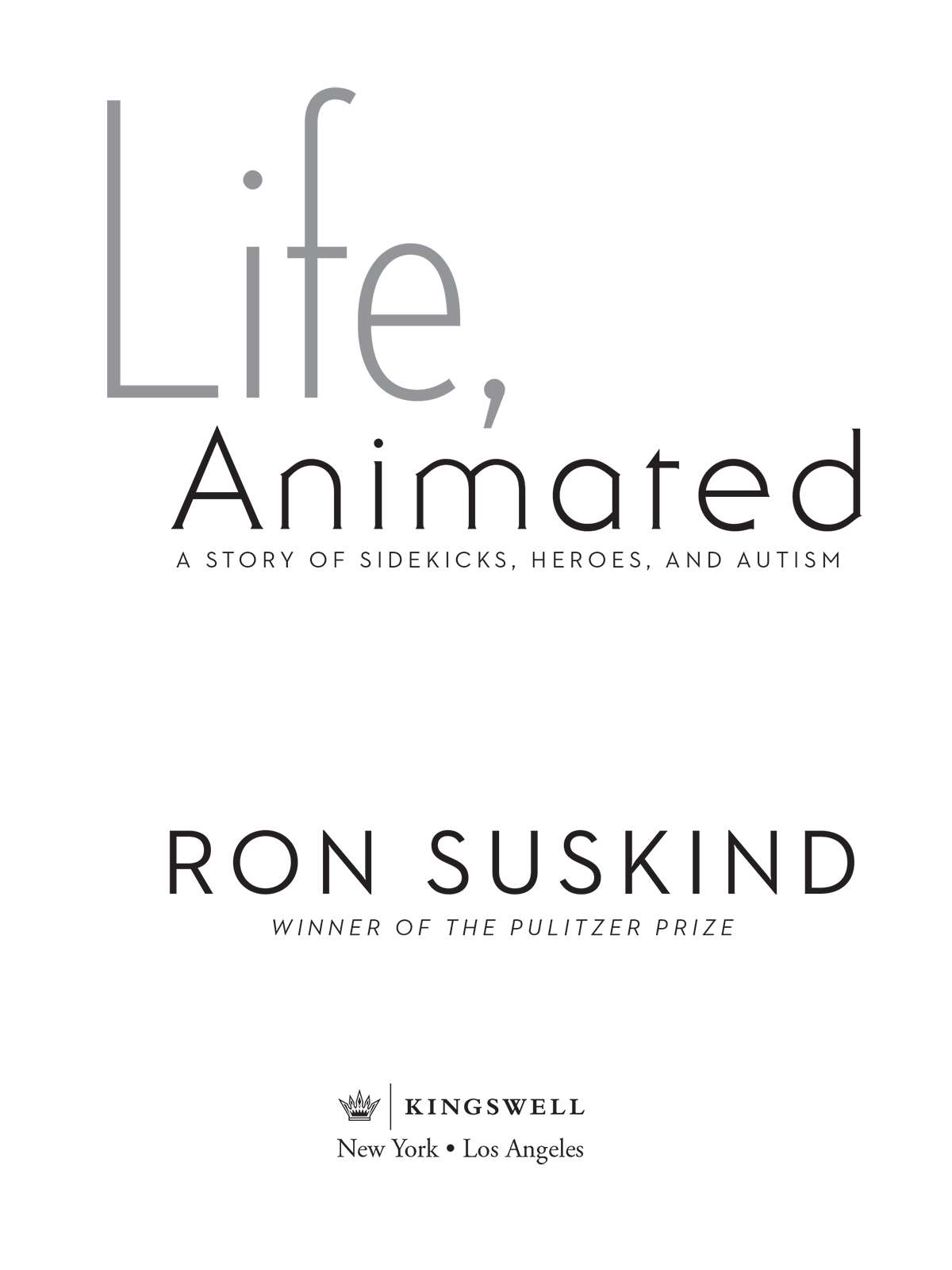A s you will learn in this book, my son Owen relied heavily on turning dialogue and song lyrics from Disney animated movies into tools to shape his identity and emotional growth.
I am grateful to The Walt Disney Company, which agreed to exert no influence whatsoever over the content of this book, even though it involves assessment and appraisal of their core line of business. The company has judiciously honored that agreement.
In this case, the independence of this work is also a matter of mutual interest, in that Disney is in no way endorsing the use of its materials for any matters related to autism.
What follows is the story of one familys experience across twenty years, and what we discovered.
T heres a videotape I have a problem with.
Its of a toddler running through fallen leaves with a Nerf sword. The time code is OCTOBER 1993. The boy runs like kids do at that age, about two and a half, with a reckless, headlong wobble that will soon be gone. We know this because, by late in the image-drenched twentieth century, we know how things are supposed to look, and can read all manner of inference into the moving landscape, most of it spot-on. Hes a wide-eyed, curly-haired boy, clad in green cords and a brightly colored winter jacket; tree types and topography suggest the northeastern United States; the leafy yard is behind a smallish home, though the swing set is elaborategrand and spanking new, a sign of young parents trying too hard. The kid is being chased by a boyish, dark-haired man whos laughing and holding a small stick as he knee-slides into the leaves, prompting the boy to turn, smiling and ready to fight. As they cross swords, the man says, Hes not a boy, hes a flying devil! in a passable imitation of Captain Hook from Disneys Peter Pan.
That the man and boy are reciting dialogue from an animated movie made in 1953 bespeaks the ubiquity of the VCR, the then-latest step in the electronic capture of sound and image begun a century before by Thomas Edison with his first recording. Rather than traipsing to the movie theater, one could then watch movies countless times in a free feed. So they did. Disney began releasing classics, like Dumbo, The Jungle Book, and PeterPan on video-cassettes; movies baby boomer parents once loved that they could buy and share, afresh, with their kids. It was a commercial bonanza that helps explain this artifact: a video of two people reciting from a video.
Now take these specifics to the universal. This appears, after all, to be a father and son playing the roughhouse games that tend to nimbly carry volumes of hidden emotions: the boy, with each step, grows into the hero of his fertile imagination; meanwhile, the dad, knowing, in some deep recess, that the boy will grow to someday replace him, considers the many creative ways to perish. All played out, effortlessly, as the boy offers his best, most elegant thrust and the man fallsas dead as the crunching leavesbefore pulling the giggling child on top of him.
Im the father in this nice if unremarkable little video. Thats my son. Ive watched it a hundred times, as has my wife, until we couldnt bear it anymore.
Its a last sighting of him, captured mercilessly and forever on the magnetic tape.
A month later, the boy vanished.
Her name was Cornelia Kennedyfrom a large Irish-Catholic clan in Connecticutbefore we were married. She now uses Suskind. Im her husband, Ron, a Jewish guy from Delaware. The older of our two sons, Waltnamed after my father, who died when I was a kidis now five. Our younger son, the boy with the foam sword, is Owen. The starter home with the leafy backyard is in Dedham, Massachusetts. Ive spent three years in the Wall Street Journals Boston bureau. Were bound for Washington, DC, where Im to be a national affairs reporter for the paper. The video is shot the day before the moving van arrives, and were all still firmly ensconced in the land of normal. I never thought much about that word, how its one of those definitions by default, shaped not so much by what it is as what its nota circle defined by everything outside of it.
Cornelia sees it first a few weeks after we get to Washington. Shes with him all day, every day.
Somethings terribly wrong.
Owen is unglued. He cries, runs about, stops, cries some more. When he pauses to catch his breath, he just seems to stare into space.
That is, when he isnt staring at Cornelia with searching eyes. She cups his wet, red face in her hands and asks whats wrong. It appears he cant tell her. Owen has never been quite as chatty as his talkative older brother, but chatty enoughthe usual going-on-three vocabulary of a few hundred words, there, at the ready, to make his needs known or express love, or even tell a little joke or story.
We have moved to a rented house in Georgetown and everything transpires within a flurry of ambient activity: boxes to unpack, a new school for Walt, and a new job in a large, noisy news bureau for his father. So the loss of speech isnt noticed until Owen is down to a few words. A month after the moving vans depart in November, Owen has but one word: juice.

